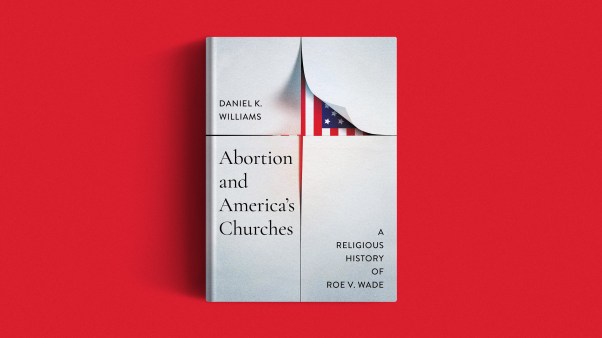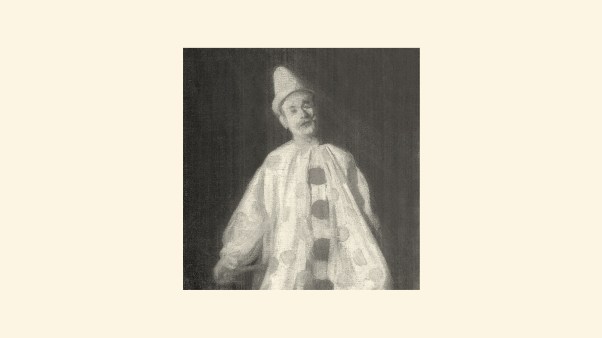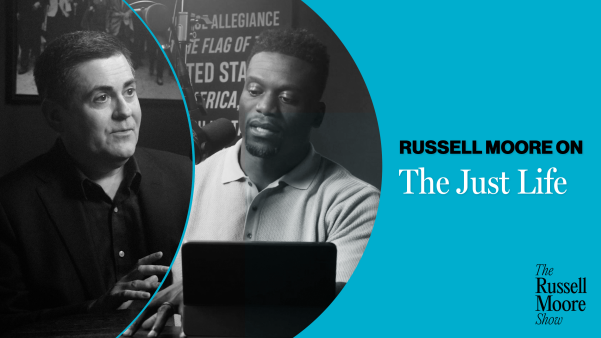Fans of Barry Sonnenfeld’s hit sci-fi/comedy Men in Black packed theaters to celebrate the return of Agents J and K, the illegal-alien-nabbing heroes played by Will Smith and Tommy Lee Jones. “They’re back in black,” the previews promised. But Men in Black 2 (a.k.a. MIIB), this week’s box-office champ, recycles so many of the original’s ideas that critics complain it’s just a boring re-hash.
Perhaps the most notable change is that Agent J (Smith), who was recruited as a rookie in the last episode, has become the expert. His mentor, Agent K (Jones), has to be brought back from a memory-wipe to return to active duty. K knows the fate of something called “the Light,” a device that could give a nasty, lingerie-clad alien (Lara Flynn Boyle) the power to destroy the world as we know it. If K can get his memory back and find “the Light” before the bad guys do, he’ll save us all.
But he can’t save the movie from aimless plot twists and bad comedy. Mainstream critics claim that the joke-a-minute writing that worked so well in the original seems half-hearted and poorly executed here. Religious press critics are similarly disenchanted, not only for the lack of ideas, but for the lack of a story or anything meaningful.
Jeff Diaz (The Film Forum) asks, “Am I the last human on Earth that likes to have his entertainment be good? Are we a society that prizes witless, inane ‘entertainment’ so much that we invest so heavily in it?” Likewise, Hillari Hunter (Christian Spotlight) asks, “Have you ever watched a movie where it is obvious that the actors are saying dialogue that is supposed to be funny, but you’re not laughing?”
Michael Elliott (Movie Parables) writes, “This convoluted and ultimately disappointing plot amounts to very little as the actors seem satisfied to lazily collect their paychecks and simply let the CGI animators upstage them with their various alien creatures. … The animation and makeup effects are uninspired. What was fresh and original in the first film feels tired, stale, and unfunny here.” A critic for The U.S. Conference of Catholic Bishops agrees: “Both Smith and Jones seem comfortable—possibly a little too comfortable—as they get into a rhythm. However, there’s a certain been-there-done-that quality to their performances that neither can really shake.”
Redundancy isn’t the only problem, according to Paul Bicking (Preview). Bicking is bothered by “frequent violence in a humorous manner with too much crude and suggestive material for the expected younger audience.” Ted Baehr (Movieguide) agrees, criticizing “highly sexual” sight gags.
A couple of critics didn’t seem so bothered. Bob Smithouser (Focus on the Family) says the movie is “a fun ride at times. It’s impossible for MIIB to match the sheer novelty of its predecessor, but considering how much of a letdown it could have been, the sequel holds up pretty well on an entertainment level.”
Holly McClure (Crosswalk) says, “Is it a sequel worth seeing? It’s an entertaining, thrilling crowd pleaser that doesn’t take itself too seriously.” But she admits, “I was a little disappointed. With a little more character depth and a few good lines, MIB II could have been a classic.”
Christian viewers might be puzzled by a surreal sequence that spoofs Moses coming down from the mountain with the Ten Commandments. We discover that an entire culture of tiny aliens are living inside a locker in the MIB headquarters. When Agent K opens the locker and addresses the species, it gives them a sort of religious experience. Their tiny spokesman is dressed like Moses. He addresses the crowd and directs their attention to the only printed document they have ever received from the human “deity.” The tablet of holy writ is a business card for a local video store. Thus, the masses are found chanting in unison the specifics of late fees and due dates, the only words they have received from a higher reality. It’s an elaborate joke, and one of the few that is actually funny. If the film showed any signs of intelligent satire, I would wonder—Is Sonnenfeld just going for cheap laughs? Or is he suggesting that religion is just a ludicrous façade shoddily constructed by people hungry for meaning?
Perhaps there’s another interpretation. Perhaps he is suggesting that audiences can’t think for themselves—that they put their faith in advertising and follow blindly wherever the media lead. After all, in spite of a host of bad reviews, moviegoers have already made this disappointing waste of time a box office success. (My full review is at Looking Closer.)
Hot From the Oven
In The Powerpuff Girls Moviethe world is saved from evil yet again. This time, the heroes are little cartoon girls with superpowers, making the move from television to the big screen in a single bound. But religious press critics are not terribly impressed by these saviors either.
The U.S. Conference of Catholic Bishops‘ critic calls it “a tedious animated feature in which drawn-out action sequences are wrapped around a dim-witted story. The film lacks wit and droll dialogue, instead just punching the clock and hoping to catch a free ride from the success and built-in audience of the television series.”
“Excessive violence earns this animated feature only a moderately positive acceptability,” says Mary Draughon (Preview). “The creators of this action-based cartoon try to justify the violence by allowing good to overcome evil. But positive themes are often buried in ‘preachiness.'” (Ironically, this is the same criticism some reviewers are leveling at the resurgence of “Christian” action movies.)
Phil Boatwright (Movie Reporter) and Douglas Downs (Christian Spotlight) both agree that “there are far too many negative messages present for our children.” Holly McClure (Crosswalk) says, “I can’t for the life of me understand why anyone over 10 would find this movie entertaining or interesting.”
This verdict is not unanimous. James Akin (Decent Films) raves, “The movie delivers what fans of the series will want, while successfully adapting to the demands of the big screen. Overall, it fares well. The girls are incredibly cute.” For newcomers to the series, and especially for parents, Akin says, “The fact that this is their origin story makes it accessible for those encountering them for the first time. And there are well-placed gags in the film that will keep adults chuckling.”
Eric Rice (Movieguide) qualifies his praise: “You have to be a fan to really enjoy this film. Though the girls are cute, they are very violent and aggressive toward each other and the villains.” Rice registers other objections, including that the filmmakers liberally use the word butt. But he adds, “The animation has a stylized look that is pretty cool.”
Steven Isaac (Focus on the Family) writes, “The Powerpuff Girls‘ cutoff age has to be about nine. If you’re older than that, Powerpuff is just plain shrill, obnoxious, pointless, and silly. If you’re younger, well, let’s just say you have a much better chance of enjoying it than the rest of us.”
* * *
In the new sports comedy Like Mike, nobody threatens to destroy the world. The problems are much more kid-sized. Junior rap star Lil’ Bow Wow (nephew of grownup rap star Snoop Dogg) plays an orphan who discovers a pair of magic sneakers, which let him soar with the NBA’s best. As he becomes a mini-Michael Jordan, he brings some lessons to the pros about teamwork and friendship, overcomes his own insecurities, and finds a family.
This formulaic, kid-oriented comedy surprised critics in both the mainstream and religious press. Michael Elliott says, “The story … is both silly and predictable but, to its credit, once it establishes its credulity-stretching premise, it stays faithful to it. Even though there will be a fair amount of eye-rolling early on, it’s impossible to completely dismiss this film as being ridiculous. It is ridiculous, of course … but it is also refreshing, disarming, and just outright enjoyable despite its ridiculousness.”
A critic at the U.S. Conference of Catholic Bishops says, “Like Mike is an old-fashioned, sweet story that charms with endearing characters and an underdog-turned-hero plot. That’s not to say that director John Schultz’s fantasy flick isn’t predictable—it is—but it is also good-natured fun with nifty visual effects. And thrown into the bargain is a message that every child deserves a family.”
Bob Waliszewski (Focus on the Family) says, “There’s plenty to like about Mike: family, friendship, self-sacrifice. Watch out for a few jolts of negative electricity, but this high-flying basketball flick is worth considering.” Mary Draughon (Preview), Tom Snyder (Movieguide), and Phil Boatwright echo praise for the way the film deals with “serious issues.” “Not a great film,” says Boatwright, “but kind of fun.”
* * *
Sunshine State moves the viewer through beach towns north of Jacksonville, Florida, where real-estate interests are trying to buy up property and bribe local officials. This threatens the natural environment and troubles those who respect the state’s heritage. In this context, two women are struggling through changes in their relationships and ambitions. Marly Temple (Edie Falco) manages a motel and loves the place, but she is also anxious to move on with her life. Desiree Perry (Angela Bassett) has come back to Florida to visit her mother for the first time since she took off as a teenager. Their conflicts raise questions about time, change, racism, and relationships.
The critic at the USCCB gives the film guarded praise: “The unhurried pace … may cause the viewer’s mind to wander a bit, as the film sometimes sags under the weight of the talky narrative. Yet Sunshine State and its characters remain memorable. … It lingers in the mind—blemishes and all—as a frieze about lonely people trying to make connections.”
J. Robert Parks (The Phantom Tollbooth) is more enthusiastic: “Sunshine State is as relevant as they come. Hot-button issues such as racism and the conflict between development and environmentalism interact with the universal themes of family, love, and history. … If Sayles is trying to teach us anything, it’s that we can’t escape our history and the place we grew up in. We can only confront them, learn about and from them, and then move on in our lives while always recognizing that those aspects will always be with us.”
Those critics who prefer that films omit non-Christian perspectives may have some trouble with it. “Sunshine State is a complex, well-made tale,” admits Tom Snyder (Movieguide), but he concludes, “Although the movie has positive Christian content with some moral elements, including a nice church scene, it also contains many problematic worldview elements and plenty of mostly lightweight foul language.”
Mainstream critics are impressed, as usual, with Sayles’ work. “[The film] has some of the wittiest writing he’s ever done for the movies and some of the best acting he’s ever coaxed out of his performers,” says David Denby (New Yorker). “Sayles’s movie is not really an attack on corruption. Though Sunshine State has elements of nostalgia, it offers something tougher and more good-humored than the usual piety about lost innocence. By the end … one gets the impression that the march of progress may not be an entirely bad thing. The fate of Americans, after all, is to pull things up by the roots, including themselves, and then move on. That’s our ‘tradition.'”
Still Cooking
Andrew Coffin (World) offers a review of Steven Spielberg’s latest blockbuster, Minority Report, this week (Film Forum posted a variety of reviews a few weeks back). “Steven Spielberg is almost always, if nothing else, a compelling filmmaker,” Coffin says. “[He] has been highly successful in blending pop spirituality and his own peculiar sensibilities with solid popular entertainment. Minority Report is no exception.” But he also points out some weak points. “Most of the ideas are never fully fleshed out. The complexity of the film’s plot and its desire to take on issues of free will, guilt, the nature of justice, and personal privacy will be a treat to adult moviegoers. But Mr. Spielberg’s own ambivalent worldview, in which his liberal personal politics often seem to conflict with his desire to tell a good story, prevent him from being entirely successful on this front.”
Digest: Best of the Year … So Far
The year is well past the halfway point, and critics are already shuffling through their reviews to see what will emerge as the year’s most lasting and memorable titles. This week, Roger Thomas, pastor of Northeast Baptist Church in Atlanta, offers his list of the best, most meaningful films of the year at EthicsDaily.com.
Have any films this year challenged you to see things in a new or different way? I’m always curious to hear from you.
Tomorrow’s Menu
Tom Hanks and Paul Newman face off in a new gangster flick this month, Road to Perdition. The film, directed by Sam Mendes (who won the Best Picture Oscar for his first film, American Beauty), will surely be nominated for Academy Awards. And, in just a few months, Martin Scorcese will present Gangs of New York, an epic about the conflicts between the Irish and the Italians in the early years of the Big Apple. It’s clear that gangsters are still a hot subject in Hollywood. The men in the long black coats continue to provide compelling drama for audiences. And classic genre films like The Godfather and its sequels, Millers Crossing, and GoodFellas continue to show up on critics’ favorites list.
Why are we as a society so interested in these corrupt, shady characters? Do we relate to them on some level? Or are baser appetites drawing us to stories of sin and corruption? Send me a note with your thoughts, or tell me about a particular gangster film that has impressed you or meant something to you. Or tell me why you avoid them. We’ll take a closer look next week.
Road to Perdition doesn’t open until Friday, but Kirk Honeycutt (Hollywood Reporter) is one of several critics who has already posted a rave review. He calls it “a rock-solid gangster movie with a fair amount of suspense, intriguing characters, and bizarre bank robberies, plus a heavy dose of father-and-son dynamics, which is anything but a staple of the gangster genre. David Self’s screenplay … contains surprising twists and macabre portraits of crime figures. When the boy at one point says he enjoys Bible stories, you realize you may well be watching one. For Perdition views the sins of both fathers with stern Old Testament morality, allowing neither to escape the consequences of his actions.”
I was quite impressed by Mendes, who makes this a subtler and more haunting work than his smug, overrated American Beauty. Here, he effectively illuminates how the sins of the fathers will be visited upon the sons. He also demonstrates the nightmare of living in a world of law that offers no possibility of grace.
Michael Sullivan (Hanks) is a thug in a long black coat, as well as a loving husband and father. He owes his life to Mr. Rooney (Newman), a godfather/tyrant who rules his small community with a smile and an iron fist. But when Rooney’s own son Connor (Daniel Craig), a reckless and power-hungry crook, deals Sullivan a grievous personal blow, Sullivan’s desire for revenge makes him an exile from Rooney’s body of villains. Thus, this fallen and violent man struggles with a desire to be free from this system of cruel Mafia law, his desire for revenge, and his desire to protect his innocent son from the stain of violence.
It’s a simple story that could have dealt more effectively with some fundamental spiritual questions. Is the God to whom he prays a God of law and vengeance, like Rooney, or is he a God of grace? Redemption is portrayed as something we must earn with our own goodness rather than accept as God’s free gift. David Self’s script instead focuses on earthbound father/son issues. This is unfortunate, especially since the book on which the film is based spent more time on spiritual issues. Nevertheless, Perdition joins Clint Eastwood’s Unforgiven and this year’s Insomnia as another haunting film about how violence begets violence, and how grownups must strive to be virtuous role models for impressionable young people.
* * *
Many fans of Tolkien, Lewis, and other fantasy literature writers have long desired to see a great movie made about dragons. Some were happy with the whimsical Dragonheart, in which Dennis Quaid played a warrior who befriends a temperamental dragon (voiced by Sean Connery). But others argued that the film was too sentimental, and the dragon too comical.
Few will be making that argument about Reign of Fire, in which fire-breathing monsters are awakened beneath present-day London. They take to the air and conquer the world, swooping down on major cities everywhere in vast numbers, burning everything in sight.
Director Rob Bowman (The X-Files) wisely keeps the dragons hidden in fog, shadow, and smoke for most of the film, developing suspense much the way Spielberg did in Jaws. Along the way, he serves up many macho confrontations, an anti-dragon skydiving mission, and some truly spectacular moments that should satisfy fans of dragon lore.
Unfortunately, we are also treated to the most ludicrous plot-resolution logic to come along in a while. Over-the-top performances from Christian Bale (Empire of the Sun, American Psycho) and Matthew McConaughey (EdTV, A Time to Kill) lend an urgency to the material that is so compelling, it just might distract audiences from the fact that the story is full of holes big enough for a dragon to crawl through.
Bale plays Quinn, a brawny Brit helping a group of survivors struggle through a world of smoking ruin. (You’ll be convinced that they’ve set up shop in one of the sets from The Road Warrior—they have all of the ramshackle vehicles and artillery that they need.) Bale spends his time defending his castle against dragon assaults and providing guidance to the many fearful children in his network of caves. We also see him leading them in “prayers.” But these prayers have nothing to do with a deity. They are instead merely ritual chants of the rules for surviving a dragon attack. In fact, the film’s lack of any single reference to spirituality or the need for divine guidance is startling. You would think that these people, beaten down, losing strength and resources, might search for help from a higher plane. Nope.
The only help that comes arrives in the form of war-hardened American warriors who claim to be dragonslayers. They are led by a brute named Van Zan (McConaughey), who looks like he has been preparing for Fight Club 2 by running around in war-torn Afghanistan. Bald, bearded, muscle-bound, and tattoo-clad, he rants in a raspy voice that will convince you he gets up in the morning and eats a heaping bowl of ash. Van Zan and Quinn grapple for control of the survivors until they learn the hard way that they must put aside their pride and work together against the fiery foes.
If you’re planning to see Reign of Fire this weekend, brace yourself for a relentlessly violent, melodramatic, and illogical adventure. There’s plenty to entertain and amuse, but not to analyze. The dragons could have suggested the various forms of plague and destruction humankind has unleashed on the world, like the dinos in Jurassic Park, but the film does not explore this possibility seriously. When something goes right for the heroes, do they find any spiritual insight in the experience? No. They just smile and exclaim, “Here’s to evolution!” How is that comforting?
Next week: Gangsters and dragons—What can we learn from these monsters?
Copyright © 2002 Christianity Today. Click for reprint information.








